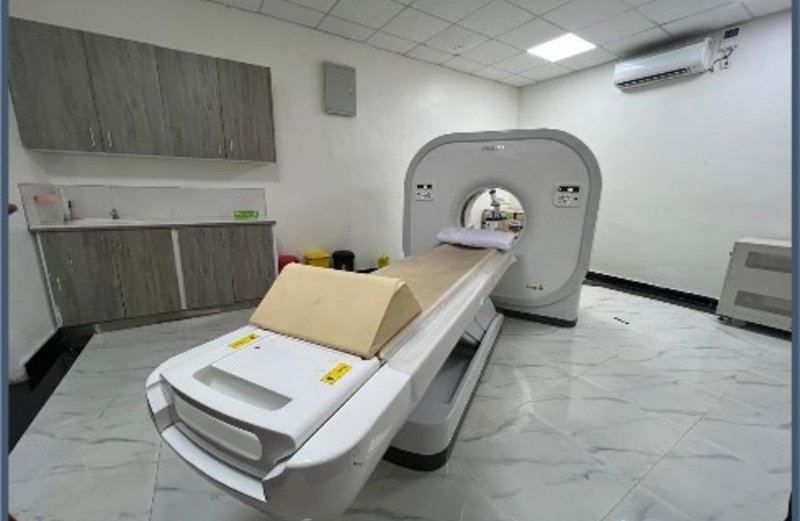AUDA-NEPAD Home Grown Solutions Accelerator for Pandemic Resilience’s support phase making impactful strides

The Home-Grown Solutions (HGS) Accelerator for Health System Resilience launched its 2024 cohort, supporting 8 new African healthcare companies in line with the African Union's Agenda 2063. Since the July kick-off, the HGS team has now visited each company, gaining deeper insights into their operations and specific needs. With acceleration plans now in place, the program is poised to provide targeted support to enhance these companies' contributions to strengthening health systems across Africa.Please see below the companies’ support topics and detailed acceleration updates:
Jacaranda Maternity (Kenya): The accelerator is supporting Kenya-based maternity hospital Jacaranda Maternity in optimizing its customer journey and understanding the drivers of patient conversion from antenatal care to delivery. Additionally, the accelerator will assist Jacaranda Maternity in optimizing their costs, particularly focusing on sustainable growth and cost base optimization as they plan to expand from three to more than fifteen hospitals in the next four years.
Pharmakina (Democratic Republic of Congo): Pharmakina, a leading producer of quinine, is being supported by the accelerator in market intelligence, strategic planning, and investor readiness. The team visited Pharmakina’s plantations and manufacturing facilities in Bukavu to assess the company's operations and explore opportunities for expanding into new markets, including the production of additional plant-based APIs such as artemisinin.
KPN Teleradiology (Kenya): The accelerator is aiding KPN Teleradiology, a Kenyan company providing teleradiology solutions, in integrating artificial intelligence into their Picture Archiving and Communication System (PACS) to enhance reporting. The team is also supporting KPN in scaling their operations across Kenya and into neighbouring countries like Rwanda and Uganda, as well as preparing for investor readiness through data room setup and company structuring.
Talamus (Nigeria): Talamus Health Inc., which leverages technology to improve healthcare access in Nigeria, has transitioned from a SaaS model to a transactional model. The accelerator is assisting Talamus in refining their financial model to reflect this change and ensuring their marketing strategy aligns with the new revenue approach. The team is closely engaged with the leadership to navigate these shifts effectively.
Syndicate Bio (Nigeria):The accelerator is working with Syndicate Bio, a pioneering genomics and precision medicine company in Nigeria, to enhance their fundraising efforts and strategic partnerships. Recently, Syndicate Bio has been engaged in due diligence with Roche, preparing to access 20,000 samples for a project in Botswana. The accelerator will support them in presenting this opportunity to investors and introducing potential partners for expansion.
Deepecho (Morocco): Deepecho, which uses AI to aid in ultrasound diagnosis, is being supported by the accelerator in developing their go-to-market strategy, identifying partners, and refining their financial model for fundraising. The accelerator team is conducting ongoing reviews of Deepecho’s market validation efforts to ensure successful scaling in Morocco and Sub-Saharan Africa.
Vula (South Africa): Vula Mobile, a platform that facilitates health worker referrals, is being supported by the accelerator in refining their SaaS model. Facing challenges due to limited traction, Vula plans to introduce tiered subscription models to enhance value and revenue. The accelerator team is also reviewing their financial model to justify their fundraising needs as they aim to raise $1.5M to $2M.
Sammanté (Senegal): The accelerator is supporting Sammanté, a Senegalese microinsurance platform, in refining their marketing strategy, business model, and SaaS partnership support. As they plan a site visit, the accelerator will assist Sammanté in refining their customer acquisition strategy and identifying more effective marketing channels to scale their operations within Senegal.
The initiative is excited to begin the support phase for the two selected alumni companies Africa Healthcare Network and Access Afya from 2 September 2024.
Please find a short profile of the 2021 Alumni receiving follow-on support below:
Africa Healthcare Network [website] is a East-Africa-based renal care provider, setting up centers that offer quality dialysis at an affordable cost.
Access Afya [website] is a Kenya-based franchise clinic solution that offers low-cost, high-quality primary healthcare in informal settlements and remote areas.
For more information, please consult our internal microsite: Home-Grown Solutions (HGS) Accelerator for Pandemic Resilience
-END
